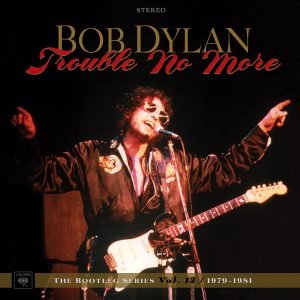
Trouble No More: The Bootleg Series,
Volume 13 (1979-1981) (2017)

102 songs. Too numerous to list here
Few periods in Bob Dylan’s vast and varied career have provoked as much consternation as his so-called “Born Again” phase, spanning roughly from 1979 to 1981. During this era, Dylan abandoned the cryptic poeticism of his earlier work in favour of overtly evangelical themes. The reaction from both critics and long-time admirers was, at best, ambivalent. That Dylan had undergone a spiritual transformation was not in itself the controversy—it was the uncompromising dogmatism of the lyrics and the often blunt musical settings that alienated many.
Trouble No More, the thirteenth volume of the ongoing Bootleg Series, seeks to reappraise this misunderstood period through a comprehensive collection of live recordings, unreleased studio takes, and rehearsals—spanning over 100 tracks across multiple discs. As with the increasingly exhaustive trajectory of the series, this release is more archival document than traditional album, and it is not for the faint of heart.
The sheer volume of material makes it difficult to absorb in a single sitting—or even over multiple sessions. As with earlier Bootleg Series entries, the value here lies in historical breadth rather than editorial precision. It is an all-encompassing view of a polarising era, presented with scholarly completeness but little concern for accessibility.
That said, there are moments of undeniable power scattered throughout. Live renditions often carry more conviction than their studio counterparts, and Dylan’s band—featuring some of the finest session musicians of the time—imbues the gospel arrangements with a driving urgency. Even those unmoved by the lyrical content may find themselves impressed by the musical intensity.
Yet the central dilemma remains. For those already skeptical of this period, the idea of sifting through dozens of alternate takes and sermon-infused performances may feel more penance than pleasure. Admirers of Dylan’s more enigmatic phases may find the overt messaging difficult to reconcile with the subtlety and ambiguity that defined his earlier work.
Still, Trouble No More is not without merit. It offers insight into a moment when Dylan, once again, refused to play to expectations and pursued his artistic convictions with unwavering commitment. Whether one shares those convictions is another matter entirely.
Go back to the main page
Go to the Next Review